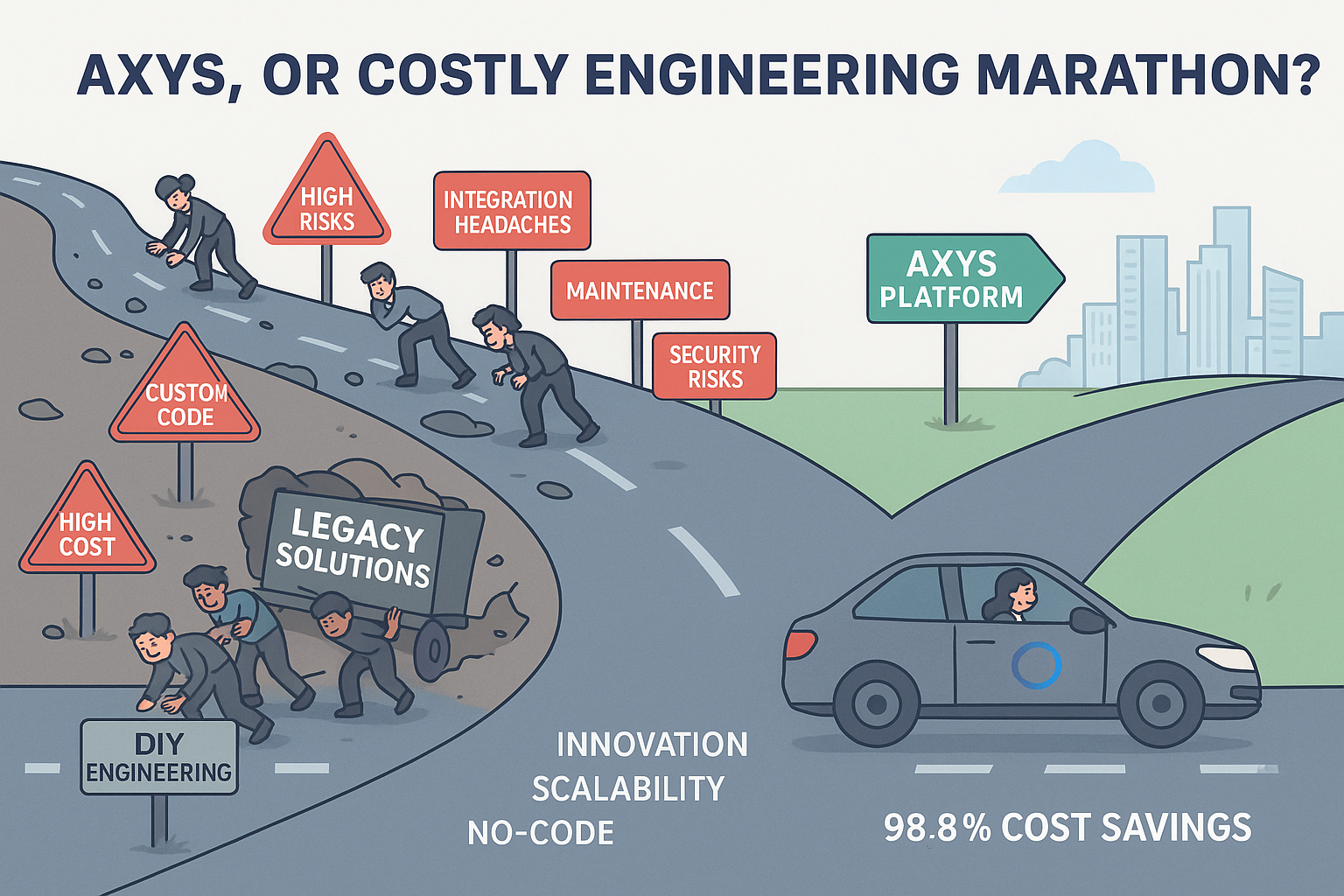What is an Enterprises Search
Enterprise search is a software system that provides a search interface to multiple enterprise-type applications. For example databases, the internet, and document management systems. The purpose of enterprise search is to allow users to quickly find and access relevant information and resources within the organization, regardless of where they are storing information.Enterprise search systems typically have advanced features such as faceted search, synonym expansion, and language support.
These searches allow users to refine their search results and find the most relevant information. Enterprise search systems can also integrate with other enterprise systems, such as customer relationship management (CRM) or enterprise resource planning (ERP). These search systems can provide a unified search experience across the organization.
The Enterprise Search Systems
There are several types of enterprise search systems, including:
Internal enterprise search: This type of search is used to search for information within an organization’s internal systems, such as databases, intranet, and document management systems.
External enterprise search: This type of search is used to search for information on external websites and databases, such as public websites and industry-specific databases.
Federated search: This type of search allows users to search multiple internal and external systems simultaneously, returning results from all the systems in a single search interface.
Vertical search: This type of search is specialized for a specific industry or domain and is used to search for information within a specific domain, such as legal, medical, or technical information.
Mobile enterprise search: This type of search is optimized for use on mobile devices and allows users to search for information on the go.
Audio and video search: This type of search allows users to search for audio and video content within an organization’s systems.
Problem Organizations may Face
There are a number of challenges that organizations may face when implementing an enterprise search system. Some of the most common include:
Data silos: Many organizations have data stored in multiple systems and formats, such as databases, file servers, and SaaS cloud-based applications. Integrating this data and making it searchable can be a major challenge.
Query complexity: Enterprise search systems need to be able to handle complex queries, such as Boolean operators and proximity searches. This can be difficult to implement and requires sophisticated natural language processing (NLP) capabilities.
Relevance ranking: Determining the relevance of search results can be a complex task, especially when dealing with a large volume of data. Systems need to be able to rank results based on various factors, including the content’s relevance, the source’s authority, and the user’s past search behavior.
Scalability: As an organization’s data and user base grow, the search system needs to be able to scale to accommodate the increased load or expectations. This can be a major challenge for some systems, especially if their designs are not highly distributed.
Security and compliance: Ensuring that the search system complies with data protection and privacy regulations, such as GDPR, and that it is secure against cyber attacks is very important.
User interface and experience: The search system’s UI/UX has to be simple and efficient, allowing easy navigation and personalization. Improper interface design can lead to poor adoption.
Limited data: many times, the data that needs to be indexed is incomplete, non-structured, out-of-date, or not well-defined. This can lead to poor search results and a frustrating user experience.
Maintenance and Support: Implementing enterprise search is an ongoing process; it needs frequent updates, backups, and regular maintenance to keep it running smoothly.
Overall, implementing an enterprise search system can be a complex and challenging task, but with the right approach and tools, it can be a powerful tool for improving organizational efficiency and effectiveness. Axys provides a versatile experience to users and resolves all the problems enterprises face.
What Does an Enterprise Search Do?
At its core, an enterprise search works in much the same way as a web-based search engine, such as Google or Bing. The user begins by entering keywords related to what they’re trying to find. Then, based on those keywords, an algorithm searches through the company’s structured and unstructured data stores to locate any potential matches.
As certain parameters are applied—such as relevance reduction factors—the number of output results can reduce until a more precise set is identified that closely relates to what the user was looking for. This means a focused result set is rendered with only relevant matches presented for review and analysis.
Using Advanced Filtering Techniques for Relevancy Reductions
An enterprise search must be able to identify specific types of content from various data sources such as text documents and transactional data before it can offer useful information. In order to do this accurately, advanced filtering techniques must be applied to reduce irrelevant results while preserving relevancy scores. So that end users are presented only with pertinent matches in their query results page.”
Real-Time Index Monitoring
One key feature of modern enterprise search engines is real-time index monitoring or dynamic indexing. This allows indexes associated with items under consideration for inclusion in the query results set to update in near-real time or even at the moment each item is fetched from storage or repository. This ensures that queries remain up-to-date regardless of how long they have been running or how many times they have been repeated.
Benefits of Enterprise Search Engines
The main benefit of deploying enterprise search software over traditional keyword searching methods is its ability to quickly glean useful slices from large datasets across entire organizations without slowing down workers’ overall productivity levels. By allowing them more time for tactically engaging tasks like evaluation activities instead of research duties at hand where applicable. In addition, since all queries are answered quickly due to improved relevancy reductions, manual lookups become unnecessary thereby increasing efficiency even further.”
For the search to be effective, it’s essential to automate the aggregation of distributed data sources into a unified data fabric across on-premises and hybrid cloud environments. For more information, contact our data experts at Axys website or schedule a 15-minute intro here.
Latest
From the blog
The latest industry news, interviews, technologies, and resources. View all postsAXYS, Or Costly Engineering Marathon?
Unlocking AI Agent Adoption: How AXYS Empowers Businesses to Scale AI with Confidence
Still thinking about it?
Let’s get started on something great
Get startedOne Comment on “What is an Enterprise Search?”
Comments are closed.



Data Fabric 101: The Next Generation of Enterprise IT - Unlock your data potential with AXYS Platform says:
[…] Fabric has become the driving force behind enterprise IT, facilitating a new way of operating in the modern digital workplace. Modern data fabric provides […]